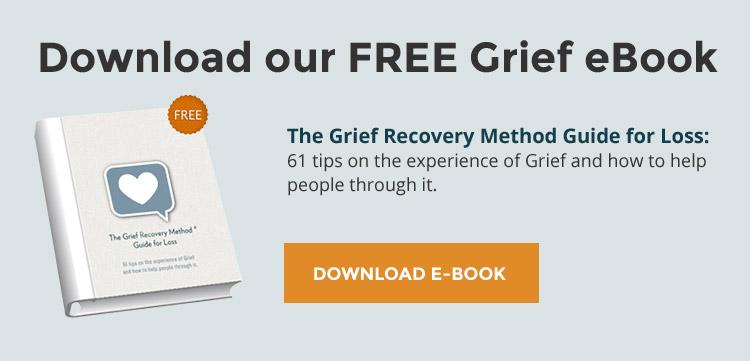Sometimes a Hug is the Most Valuable Gift
As a caring professional, you likely know that your “presence” is far more valuable than any “present” you can offer anyone experiencing a loss of any kind.
Many grievers suffer a profound sense of isolation as part of their grief. People in their personal circle that they have counted on to be there have either said the wrong things or, even worse, said nothing at all. This is not because these friends are purposely trying to cause them pain, but because they have had no meaningful training on how to support someone who is grieving.
In the past we have discussed what to say and what not to say to a griever. More often than not, rather than saying anything at all, a true hug is better than any words you have to offer. The problem is that the vast majority of people have no idea how to give a meaningful and supportive hug. There are actual “rules” concerning offering a supportive hug.
You Must Be in the Present Moment
It is essential that you be totally focused and in the present moment with that individual griever. Their attitude and body language will give you valuable clues as to if a hug should ever be offered. If you are totally focused on them and not thinking of past situations with other grievers, you will intuitively know that this personal expression of caring is indeed something that would be positive for them.

Always ask first!
It is never wise just to step in and hug someone, especially if you do not have a long standing relationship. Unless you have a long standing personal relationship with the griever, you should never just assume that a hug is appropriate. We have all heard what happens when you assume anything.
We live in a world today where many people are uncomfortable with physical interpersonal contact. There are frequent stories in the media where people have felt threatened by strangers they felt were making unwanted advances with physical touching. Indeed, within certain licensed counselling professional trainings, any form of physical contact is discouraged. As caring support givers, we constantly need to look at our professional training to see if it is increasing or decreasing the griever’s sense of isolation.
Before you ever offer a hug, you need to ask permission. This is as simple as asking “could you use a hug right now?” The fact that you asked first, gives them the choice of choosing to accept or decline your offer. If instead you were to tell them, “I just want to give you a hug”, you are not offering them a choice and they may feel obligated rather than accepting.
Give a proper hug – no burping!
There is a technique to a proper caring hug. It involves opening your arms and letting them decide how close they wish to approach you. It involve you putting your hands around their shoulders (not any lower) and just being there for them. If you are truly in the present moment, you will know how long to make the hug last. They will give you verbal and/or nonverbal clues when to let go. You should never pat them on the back (burp them) as part of your hug!
Grievers are used to people patting them on the back and telling them how to feel or how not to fell. As soon as you pat them on the back during a hug, they will have a tendency to become aware of whatever emotion they are experiencing and try to keep it in check. Even though you have not said anything, they may hear all of those other voices from past well-meaning people who said all of the wrong things. You never want them associating that with you!
While this may seem like a lot of rules for a simple act of kindness and caring, it is following these rules that will define the difference between you and all those others that had no clue on how to really help and support them.
If you found this article helpful, we suggest you visit our searchable Grief Blog for other other articles, or consider reading these:
Grief Support Involves Knowing What to Say and What to Avoid
How Do I Help a Family Member With Grief

























Add new comment